PTE Collocation Examples And PTE Collocation List 4
We are going to learn about Collocations. What is Collocation? Collocations are the combination of words that are always together. In English, Collocation is a specific arrangement of words that are used more often than might be expected. The specific arrangement of words that communicates a specific meaning. We could use other words to describe the same meaning but use the collocation that’s specific arrangement over and over again. Sometimes we use other words to describe the meaning but most of the time we use the collocation. In this article, we are sharing Collocation Examples. There are several different types of collocations.
1. Verb + Noun
2. Verb + Adjective
3. Verb + Adverb
4. Phrasal Verb
5. Noun + Noun
6. Adjective + Noun
Now we look at Verb + Noun Collocations with the word “Come” in them.
Come First – Come first mean to be the top priority or to be the most important. So something that comes first is the most important thing. For example, a father might say to his son or daughter “Your education comes first. Go to your room and study.” Now in this example, maybe the son or daughter wants to go out and see their friends but the father says your education comes first or your is most important. So studying is their priority and the most important thing they should do.
Another Example – The customer always comes first.
Now, this is often said at restaurants, stores or businesses and it means that the customer in the business is the most important thing. It’s the top priority so serving the customer, helping the customer is the most important thing. Serving the customer comes first in this company. We can also use this for people. “Awww, You will always come first in my life, my dog comes second.”
Now we can also use come first to describe your status or position in a competition. So example, we can say “We had a race to school. I came first, she came second, and he came last.” Now in this example “I” won the race, “I” came first, she was the second to finish, he was the last one to finish “he came last.” So we can use this in competitions and this is not only in races or sports, it can be used for another competition as well. For example, we can use it in like business competition, anytime people are competing. “At work, Tom came first in sales this month.” So basically this means that Tom made the most money in sales this month, so he was the top leader. He came in the first position. Now came in the first position – actually, usually come first, come second, come third, come forth, come last, we say that sometimes or usually we say “come in first” and basically it means to come in first place or come in the first position.
Now come in first, come in second, come in third and extra is mostly used for organized events. For example, we could say, “In the Olympic marathon, I came in first, she came in second, and he came in last” or “In the Olympic marathon, I came in first place, she came in second place, and he came in the last place.” Now for the Olympics, of course, they usually say “He won the gold medal, she won the silver medal, he didn’t win anything” but you can say in the first place or in second place also.
Now it’s important to say that “I come in first” is a “reduction” of “I come in the first place”, so we take off the word “place” and we reduce the sentence and it’s a reduction.
Now we look at the collocation word “Come Close” and come close means “To almost do or achieve something.” For example, “She didn’t come in first place, but she came close.” So the women from my last example, she came second, now she didn’t come in first, but she came close, so she almost came in first. So we can say, she almost achieved the first place, it was a close game.”
Another Example –
“I came close to getting (a) perfect (score) on my test.” In this example, the person almost got 100% on their test. Now you can “get perfect on the test” or “get a perfect score” but normally we say “get perfect”. So now in this example, the person did not get 100 % on their test but they came close, maybe they got 95% or 97% or something close, but what is close and what is almost? Well, that depends on the person.
Another Example –
“I came close to buying a new car today but I didn’t but it. I know I can not afford it.” Now in this example, this is doing something, so it’s not achieving something. So he almost buys the car but then he stopped and didn’t buy it. He came close.
Now “Come Close” can also be used for comparing things and in this case it means almost equal to something so it’s almost equal to something else. For example, “You’re not the most intelligent person in the world, but you come close.”
You can also use “come close” for lovers or people who love each other romantically. For example, “I love you so much. No one else comes close to you.” Now in this example, no one else comes close to you means no one else is equal to you in being important to me. Really we can say, “No one else comes close to you in being important in my life.” But that’s too long, so we reduce it and say “No one else comes close to you.”
Come Close is often used in the negative sense. For example, “The quality of that car doesn’t (even) come close to the quality of that car.” That car is better, I’m gonna buy it. So, this car is not equal to that car. This car is not even close to that car. It is not almost equal. It is very low-quality probably. This is used to express more emotions like that car is of low quality or maybe not of low quality but not as good as that car.
Another Example – “These burgers are good, but they don’t come close to the burgers at that (other) restaurant.” So, the burgers of this restaurant are good but the burgers of those restaurants are really good. These burgers are not close, they are not almost equal and they are far away from being equal.
Another collocation with word “COME” is “Come To Terms”. Basically terms to close means “To reach an agreement”. Maybe you disagree or you don’t know what the negotiation is so you must reach an agreement. For example, “The two companies came to terms after many long hours of negotiation.” This could be an agreement between two large organizations or groups of people or it will be between two people. “They could never come to terms, so they got a divorce.”
Another collocation very similar to “come to terms” is “Come to terms with + noun”. It means to accept (and deal with) an emotionally painful or stressful event.” For example, “It took him a very long time to come to terms with the death of his wife.” So, this gentlemen’s wife died and it took him a very long time to emotionally accept. So, he had a very difficult time to accept her death but now he had accepted it “She is died and she is gone.” He has come to terms with her death. “She couldn’t come to terms with not being accepted into that program.”
A variation of “Come to terms with” is “Come to terms with the fact + relative clause (with ‘that’ as the relative pronoun). “That” is gonna be a relative clause. We could use the other senses with this expression – “It took him a very long time to come to terms with the fact that his wife died” or “She couldn’t come to terms with the fact that she wasn’t accepted into that program.”
Native English speakers use both of these “Come to terms with” and “Come to terms with the fact (that).
PTE Collocation Examples – PTE Collocation List 4
<< Previous Page (Collocation From No. 987 – 1283)














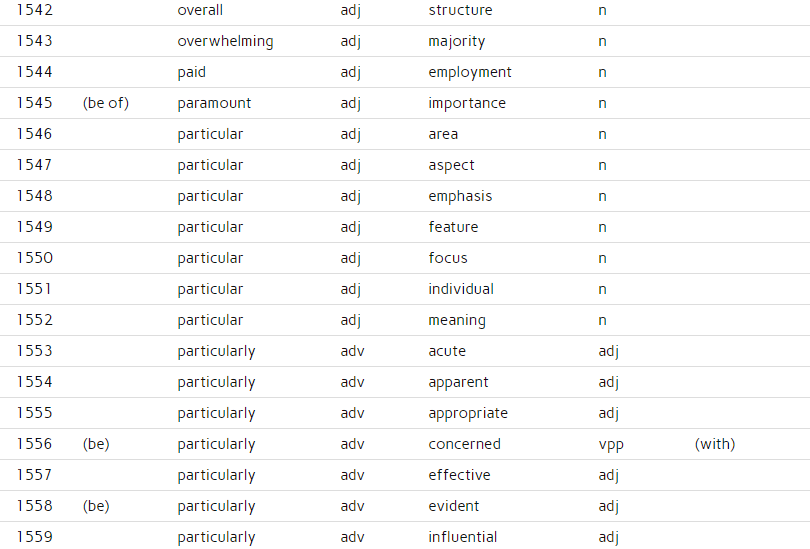


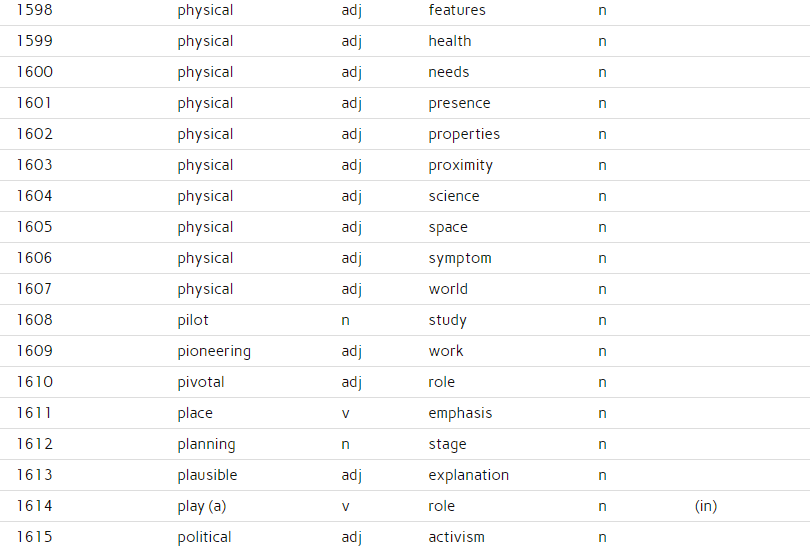














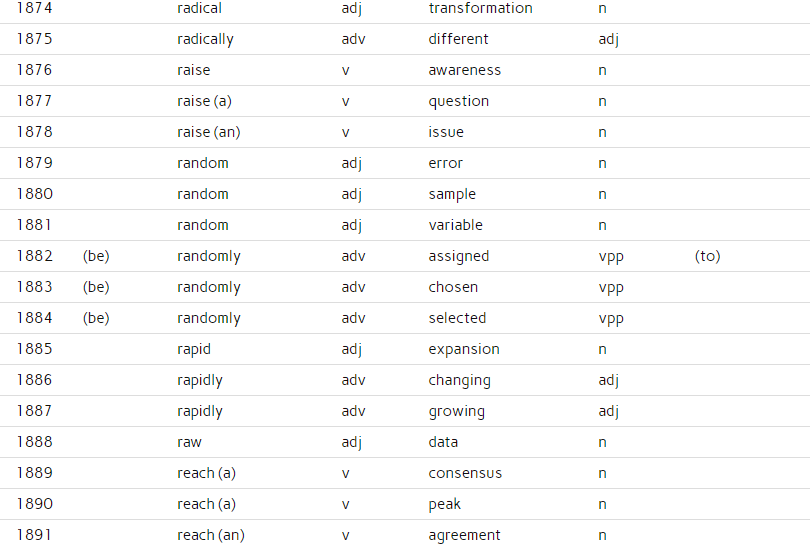



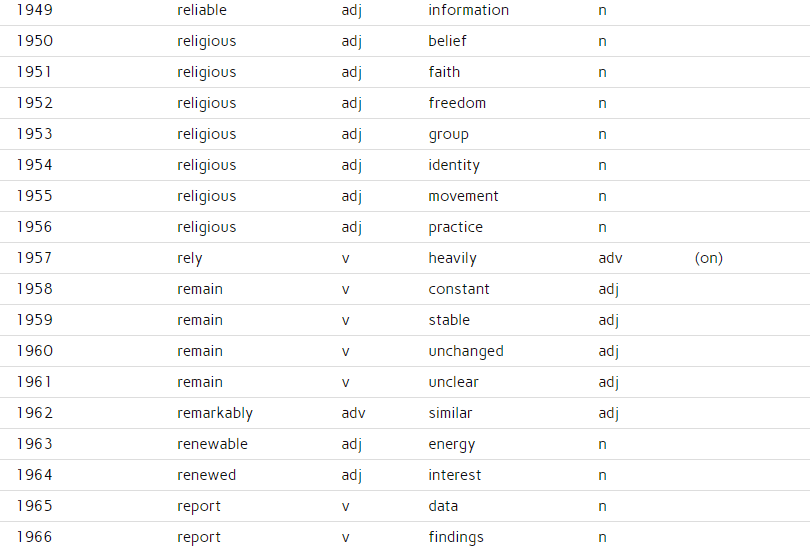

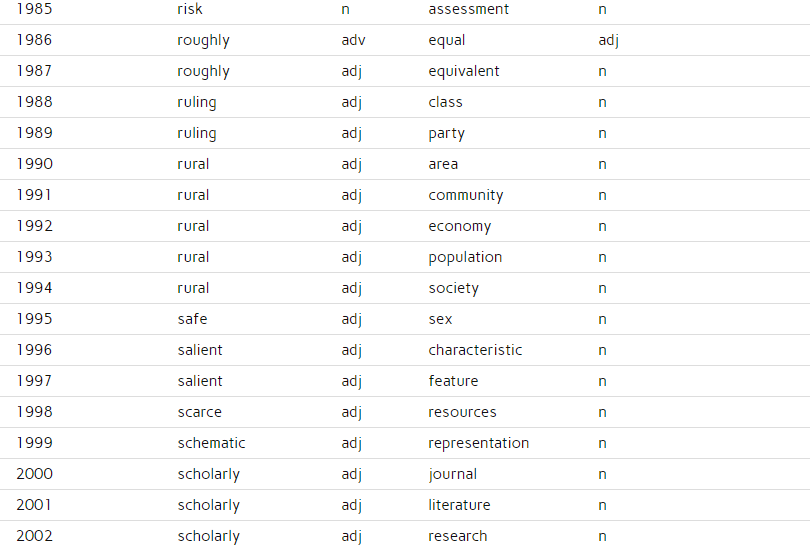


















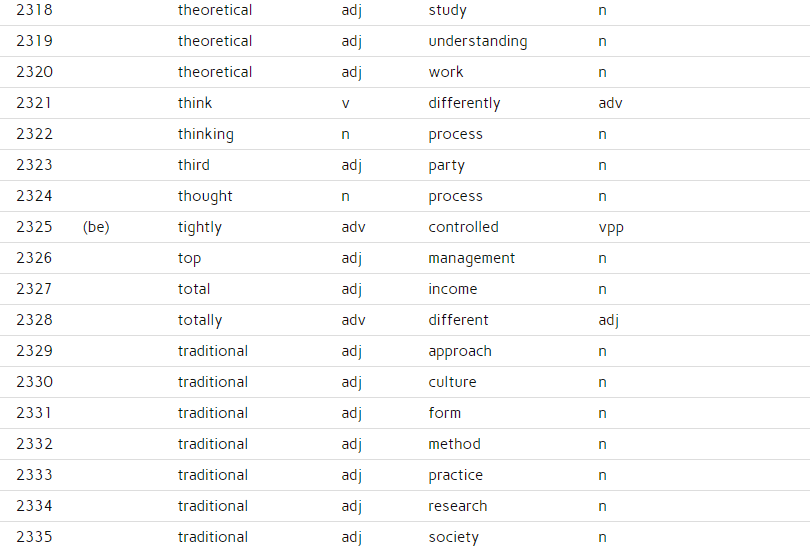

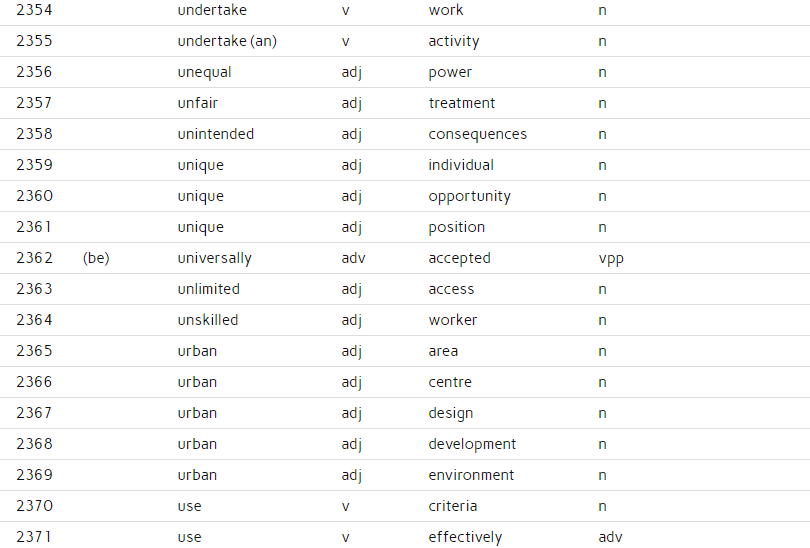






To stay updated with PTE Collocation Examples, like us on Facebook.